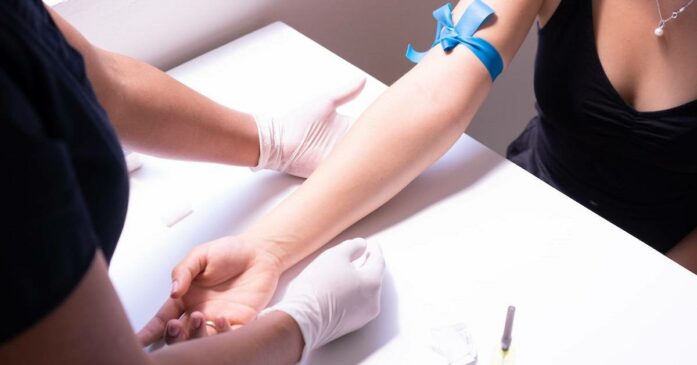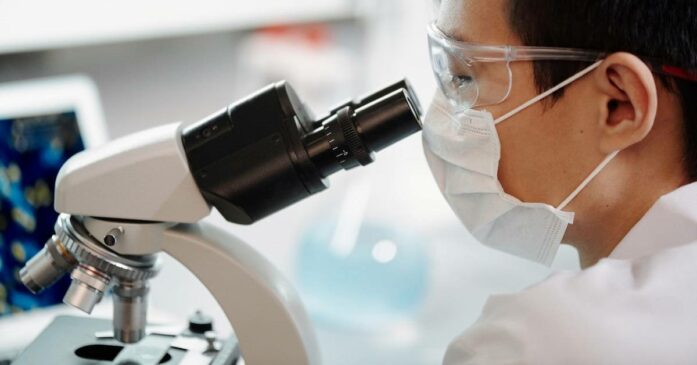
As we celebrate National Nutrition Month, it’s important to recognise how what we eat affects not only our overall health but also our skin’s health.
One issue that many people struggle with is hormonal acne. Hormonal acne can be frustrating and challenging to manage, but with the right approach, it’s possible to reduce its severity and frequency.
In this blog post, we’ll explore the causes of hormonal acne, what a hormonal acne diet involves, and the acne treatment options available.
Understanding Hormonal Acne
Hormonal acne is a type of acne that typically occurs in women around their menstrual cycle or during menopause. This type of acne is caused by hormonal imbalances, specifically a rise in androgen hormones. Androgens stimulate the sebaceous glands in the skin, causing them to produce more oil, which can lead to clogged pores and breakouts.
While hormonal acne is most commonly associated with puberty in the teenage years, it can affect individuals of any age and gender. It’s essential to note that hormonal acne can also be a sign of underlying health conditions like polycystic ovary syndrome (PCOS) or thyroid dysfunction.
Foods that cause Acne
Acne is a common skin condition that affects many people, and diet may play a role in its development. Certain foods, such as dairy, sugar, and refined carbohydrates, have been linked to acne. These foods can increase inflammation in the body, leading to clogged pores and breakouts.
On the other hand, a diet rich in fruits, vegetables, and whole grains may help improve acne symptoms by reducing inflammation and providing essential nutrients for healthy skin. It may be helpful to keep a food diary and track how different foods affect your skin to determine which foods to avoid or include in your diet for optimal skin health.
Hormonal acne can be caused by an imbalance of hormones, particularly an increase in androgens such as testosterone.
Certain foods can exacerbate hormonal acne by promoting inflammation and increasing the production of androgens in the body.

Here are some foods that may cause an increase in hormonal acne:
•Dairy products, including milk, cheese, and yoghurt
•Processed and refined carbohydrates, such as white bread, pasta, and baked goods
•Sugary foods and drinks, including soda, candy, and desserts
•Foods high in saturated and trans fats, such as fried foods and fast food
•Soy products, including tofu and soy milk
•Spicy foods can increase inflammation in the body
High-glycemic index foods, cause a rapid increase in blood sugar levels and can lead to hormonal imbalances.
It is important to note that not everyone will experience an increase in hormonal acne from these foods, and dietary triggers can vary from person to person. However, avoiding or limiting these foods may be beneficial for those with hormonal acne.
How to combine a healthy diet with Hormonal Acne Treatment
| Treatment | Type | Active Ingredients | How it helps with hormonal acne |
| Lymecycline | Antibiotic | Tetracycline | Reduces inflammation and bacteria associated with hormonal acne |
| Acnecide | Topical cream | Benzoyl peroxide | Kills bacteria and helps to unclog pores, reducing hormonal acne breakouts |
| Zineryt | Topical solution | Erythromycin, Zinc | Reduces inflammation and kills bacteria associated with hormonal acne |
| Differin Gel | Topical retinoid | Adapalene | Normalizes skin cell turnover, reducing hormonal acne breakouts and preventing new ones |
Implementing a hormonal acne diet and treatment at the same time is more effective. Lymecycline can be taken orally to address inflammation and bacterial infection from within. Acnecide and Zineryt can be used topically to kill acne-causing bacteria and reduce inflammation on the skin’s surface. Differin Gel, a topical retinoid, works to normalise skin cell turnover, preventing new breakouts from forming. These treatments are prescription-only treatments and must be prescribed by our pharmacists for use.
In addition to medication, a healthy and balanced diet can also help improve hormonal acne.
Avoiding sugary and processed foods that can raise insulin levels and trigger hormone fluctuations is essential. Eating a diet rich in fruits, vegetables, whole grains, and lean protein sources can provide the necessary vitamins and minerals to support overall skin health.
Drinking plenty of water and avoiding dairy products, which contain hormones that can exacerbate acne symptoms, can also be beneficial. Incorporating lifestyle changes such as managing stress and getting enough sleep can also contribute to improving hormonal acne symptoms.
Here are some examples of nutrient-rich foods that can improve skin health:
•Leafy greens: spinach, kale and collard greens
•Fruits: berries, oranges and grapefruit
•Whole grains: oats, quinoa and brown rice
•Lean protein sources: chicken, fish and tofu
•Nuts and seeds: almonds, walnuts, chia seeds

Where can I get advice about Hormonal Acne Treatment in Birmingham?
Take a proactive approach to manage acne and hormonal acne by seeking advice from Halo Pharmacy on improving your diet and exploring effective treatments. Halo Pharmacy is committed to guiding you towards optimal health and clear skin.
This blog post was written on behalf of Halo Pharmacy by Pharmacy Mentor.




